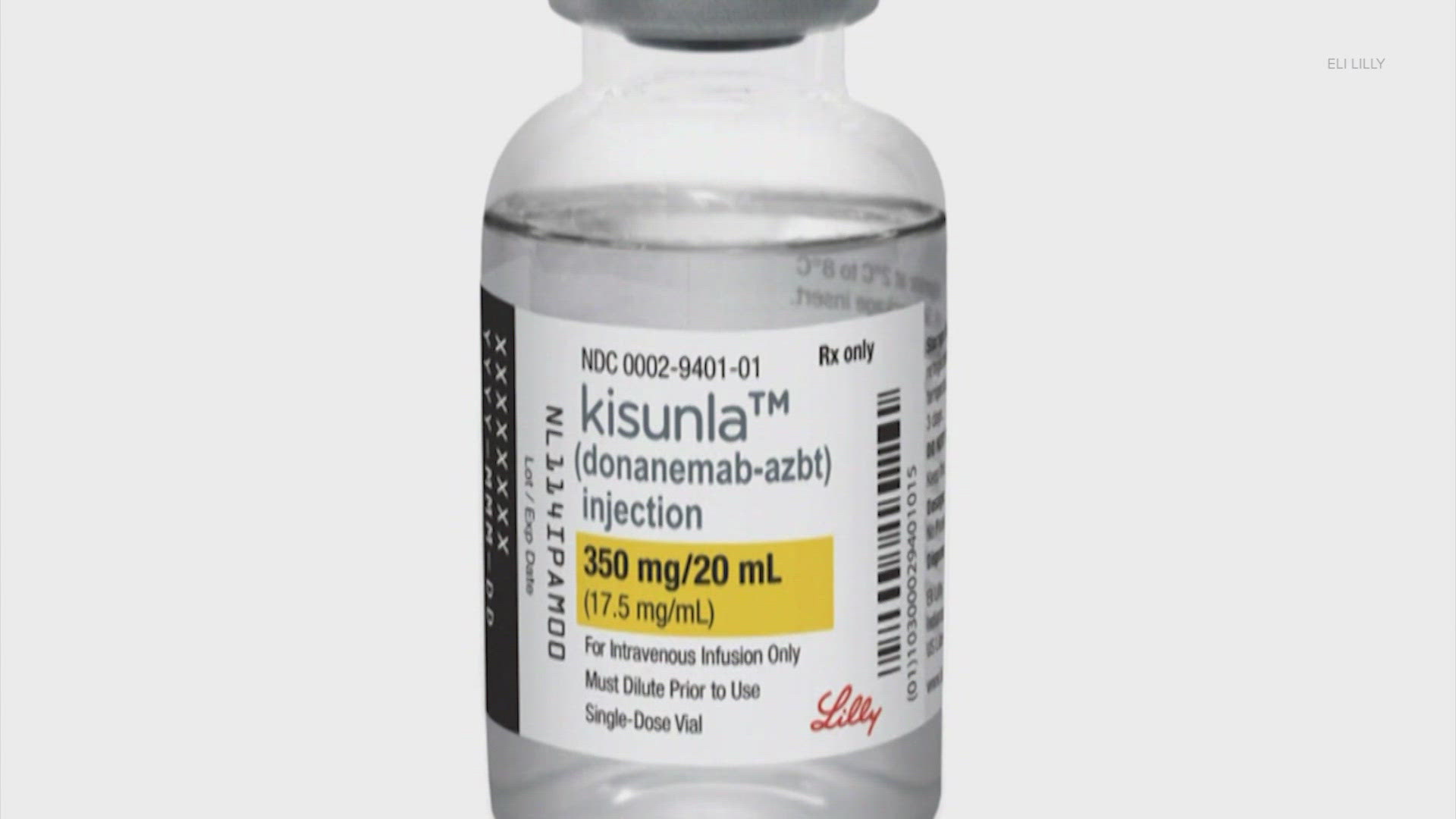HOUSTON — There is promising news for patients in the early stages of Alzheimer's and their families. The FDA has approved a new drug that can slow the progression of the fatal disease.
Despite being covered by Medicare, the drug is still expensive, but it will offer hope and more time.
"At the end of the day, I miss my Mom, you know what I mean?" Katherine Fillmore said.
It's been four years since Fillmore got the news that so many families dread.
"I don't wish this disease upon anyone," she told us.
Her mother, Amelia, has Alzheimer's. As her caregiver, alongside her dad, she's watched her mom slowly fade.
"I'm just enjoying her while I can, while she still remembers me," Fillmore said.
Families like hers across the country have been praying for new treatments. This week, the FDA delivered by approving a new drug by Eli Lilly known as Donanemab. It'll be sold under the brand name Kisunla.
"It's a very big deal in terms of the treatment of Alzheimer's," Dr. Joseph Masdeu said.
Masdeu is the Director of the Nantz National Alzheimer's Center at Houston Methodist. He said for decades there's only been medication to treat symptoms. Donanemab is now the second drug on the market that can help slow the disease progression.
"Already, we have received a number of calls from people interested in exploring the possibility of being treated with this medication," Masdeu said.
The new treatment is only an option for those in the early stages of Alzheimer's. That means, sadly, it's too late to make a difference for Fillmore's mom.
"Do I wish that this drug would have came out five years ago? Absolutely," Fillmore told us. "That's not my story, but I hope it's someone else's story."
It does give her hope for the future and for families just beginning their journey with Alzheimer's. Doctors hope it encourages more people to seek out early diagnosis.
"The earlier you are in the disease, the more you can actually do to improve your quality of living with the disease and at least slow things from getting worse," Dr. Carlos Julian Martinez-Menendez, a behavioral neurologist at UTHealth, said.
If you have questions or need information, local resources or assistance, there is free help available through the Alzheimer's Association. The 24/7 Helpline is 800-272-3900.

